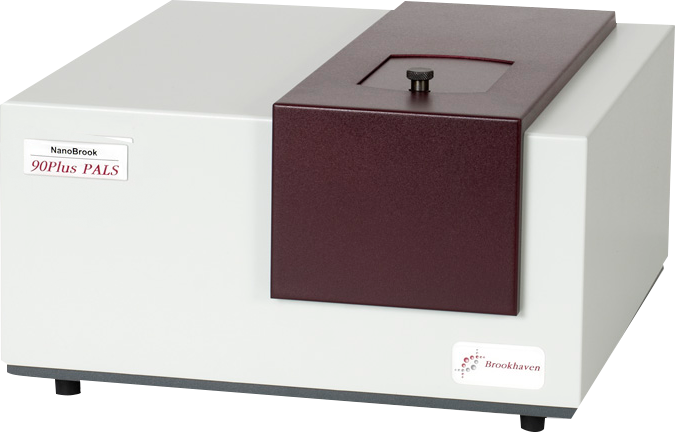
מונוכרום Shift+A
ניגודיות כהה Shift+S
ניגודיות בהירהShift+D
הגדל גופן Shift+F
הקטן גופן Shift+Z
הדגשת קישורים Shift+X
איפוסShift+C
הצהרת נגישות
© כל הזכויות שמורות 2018







הצהרת נגישות
© כל הזכויות שמורות 2018

Brookhaven’s NanoBrook 90Plus PALS instrument combines our NanoBrook 90Plus and NanoBrook ZetaPALS instruments into one powerful package for sizing and zeta potential analysis. With over a decade of proven records in diverse applications, Brookhaven’s pioneer Phase Analysis Light Scattering (PALS) technology remains a step ahead of the competition. This package delivers unparalleled zeta potential (surface charge) measurement sensitivity and accuracy. It also provides unique real-time (in-situ) monitoring capability for an electrophoretic response of particles/molecules under an electric field, a valuable tool ONLY from Brookhaven for delicate biological entities like proteins and exosomes. It has been successfully utilized in nearly every possible suspension environment from high salts such as PBS and sea water to organic solvents and of course aqueous solutions. μRhe Simple fluids like water (low viscosity), glycerin (high viscosity) are Newtonian and exhibit viscosity effects, the dissipation of energy when particles move in such fluids. But dissolve macromolecules in these liquids –synthetic or biopolymers—and networks can form. In addition to viscosity effects, there are now elasticity effects, the storage of energy when embedded particle move. By following the mean square displacement (MSD) of tracer (probe) particles in such fluid and microrheological properties such as η*, the complex viscosity, G″, the viscous loss modulus, and G′, the elastic storage modulus, can be determined as a function of frequency. Measurement of the autocorrelation function (ACF) using DLS techniques yields the MSD of tracer particles, which, under the right conditions, can be used to determine η*, G″, and G′ over a range of frequencies much higher than mechanical rheometers can attain. Much smaller sample volumes, in the microliters, are possible compared to mechanical instruments. Finally, since strains result from the thermally driven motion of tracer particles, these much smaller strains allow the study of fragile samples. The study of viscoelasticity in aggregating dilute protein solutions is a prime example of the benefits of DLS microrheology.
For More information About NanoBrook 90Plus PALS